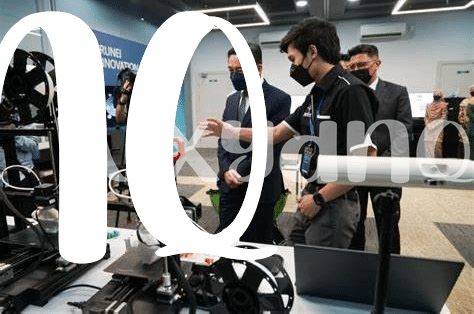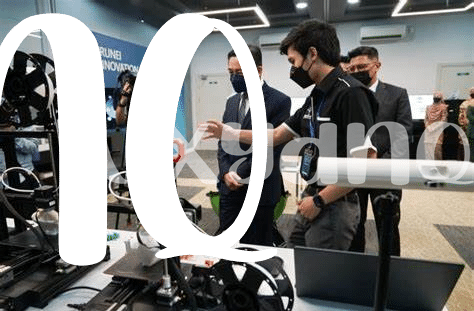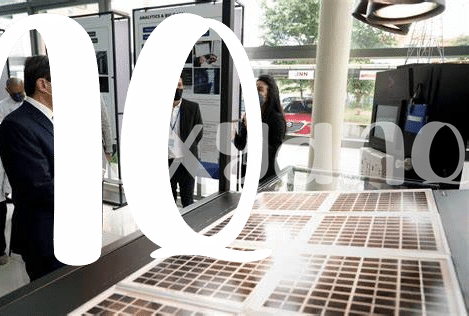Introduction to Blockchain Voting System 🌐

Blockchain technology has revolutionized various industries, and its application in voting systems holds the promise of increasing trust and transparency in electoral processes. By leveraging the decentralized nature of blockchain, voting systems can be designed to provide a secure and tamper-resistant way for individuals to cast their votes. The immutability of data stored on a blockchain ensures that once a vote is recorded, it cannot be altered, thereby enhancing the integrity of the entire voting process. This innovation not only streamlines the voting process but also minimizes the risk of fraud or manipulation, ultimately bolstering the credibility of election outcomes.
| Key Points | Explanation |
|---|---|
| Enhanced Transparency | Blockchain’s transparency ensures that all transactions are visible to all participants, enhancing trust in the system. |
| Decentralization | Decentralized nature of blockchain eliminates the need for a central authority, reducing the potential for bias or corruption. |
| Security | Blockchain’s cryptographic features protect the integrity of voting data, safeguarding against cyber threats. |
Benefits of Enhanced Transparency in Elections 🔍
Enhanced transparency in elections is a pivotal aspect that blockchain-based voting systems bring to the table. By leveraging the immutable nature of blockchain technology, all transactions and changes within the voting process are securely recorded, providing a transparent and verifiable trail of information. This not only fosters trust among voters but also allows for increased accountability among election officials and stakeholders. The ability for anyone to audit the election process in real-time helps to ensure the integrity of the results, ultimately bolstering the credibility of the democratic process.
Moreover, the enhanced transparency facilitated by blockchain-based voting systems can significantly reduce instances of fraud and manipulation in elections. With a clear and tamper-proof record of votes cast and tallied, the potential for fraudulent activities is mitigated, safeguarding the democratic principles that underlie the electoral process. This increased level of transparency not only benefits the electoral system itself but also empowers citizens to confidently participate in shaping the future of their nation through fair and secure voting mechanisms.
Increased Voter Participation and Accessibility 🗳️

Blockchain technology has the potential to revolutionize the way we conduct elections, particularly in Brunei. By enhancing voter participation and accessibility, this innovative voting system can empower citizens to engage actively in the democratic process. With the ease of casting votes from anywhere at any time, more people, including those with mobility challenges, can exercise their right to vote conveniently. This increased accessibility fosters a more inclusive and representative democracy, ensuring that the voices of all citizens are heard. The implementation of blockchain-based voting can truly transform the landscape of elections in Brunei, setting a new standard for efficient and secure electoral processes.
Cybersecurity Measures for Secure Voting Process 🔒

Cybersecurity is paramount in ensuring the integrity of any voting process. Implementing robust measures to protect the blockchain-based voting system from cyber threats is crucial. This includes encryption techniques, multi-factor authentication, and continuous monitoring to detect and prevent unauthorized access. By employing these cybersecurity measures, the voting process can be safeguarded against manipulation, ensuring that the results accurately reflect the will of the voters. It is essential to stay vigilant and proactive in addressing potential vulnerabilities to maintain trust and confidence in the security of the voting system. To delve deeper into how blockchain technology is being integrated into government initiatives, particularly in Brazil, check out blockchain technology innovation policies in Brazil.
Addressing Concerns of Traditional Voting System 🤔
Traditional voting systems have long been fraught with concerns regarding transparency, security, and trust. These systems often face challenges such as tampering with ballot boxes, voter fraud, and disputes over election results. Blockchain-based voting systems offer a promising solution by providing a secure, transparent, and immutable platform for conducting elections. By utilizing the decentralized and tamper-resistant nature of blockchain technology, concerns about the integrity of the voting process can be effectively addressed.
Furthermore, the use of blockchain can enhance the credibility of election results, combat voter manipulation, and increase public confidence in the democratic process. Through the implementation of blockchain-based voting systems, Brunei can overcome the shortcomings of traditional methods and pave the way for a more efficient, inclusive, and trustworthy electoral system.
| Benefits of Blockchain Voting Systems: |
|---|
| – Enhanced Transparency |
| – Increased Security |
| – Improved Trustworthiness |
Future Implementation of Blockchain Voting in Brunei ✨

Blockchain voting systems offer a promising path towards revolutionizing the democratic processes in Brunei. The future implementation of this technology holds the potential to streamline voting procedures, enhance data security, and increase trust in the electoral system. Through the utilization of blockchain, Brunei could pave the way for a more transparent and efficient voting experience for its citizens. By embracing innovation, the nation has the opportunity to set new standards in electoral integrity and participation, ensuring that the voice of every voter is heard loud and clear in shaping the future of the country. This transition towards blockchain-based voting signifies a progressive step towards a more inclusive and trustworthy democratic framework.
To explore the latest policies regarding blockchain technology innovation, check out the blockchain technology innovation policies in Bosnia and Herzegovina.
